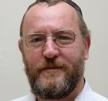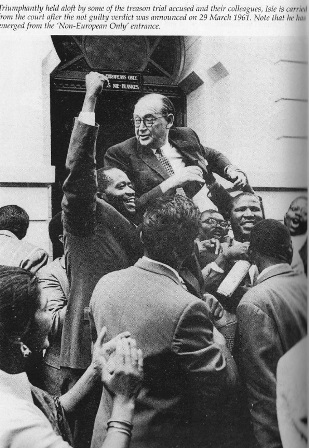Environmentalism’s misanthropy problem
Top figures in the environmental movement, like Sir David Attenborough, constantly remind us that humanity is a plague, and that the world would be much better off without us. And they mean it.
Speaking to the BBC about the launch of his new documentary, which shows the positive impact of Covid-19 lockdowns and tourism bans upon the natural world, Sir David Attenborough could not help but take another dig at that awful species, homo sapiens.
‘Human beings, even with the best will in the world, cannot but restrict the natural world,’ intoned the 94-year-old voice of many memorable nature documentaries. ‘That’s what we’re doing. We’re pushing it aside. Even the most considerate of us. That’s almost inevitable to some degree but let us realise that we are intruders, that we are latecomers and that the natural world, by-and-large, would do much better if we weren’t there at all.’
In the documentary, he celebrates the fact that a leopard could stroll unmolested through a game lodge in South Africa, and that the Himalayas are now visible from afar because of reduced smog in India. What he fails to note is that the lovely views of the mountains and the idyllic silence of safari tourism venues comes at a catastrophic human cost. It required draconian shutdowns of productive industries that once employed millions of people, most of them incredibly poor by Sir David’s lofty standards.
Attenborough’s loathing of humanity is not new. In 2013, he described human beings as a ‘plague on the Earth’, arguing that the chickens would come home to roost in the next 50 years.
He reportedly told the Radio Times: ‘It’s not just climate change. It’s sheer space, places to grow food for this enormous horde. Either we limit our population growth or the natural world will do it for us, and the natural world is doing it for us right now.
‘We keep putting on programmes about famine in Ethiopia – that’s what’s happening. Too many people there. They can’t support themselves – and it’s not an inhuman thing to say. It’s the case. Until humanity manages to sort itself out and get a co-ordinated view about the planet, it’s going to get worse and worse.’
Debunking famines
Let’s quash that bit about famine, for a start. Attenborough said this almost 30 years after the last major famine in Ethiopia, which lasted from 1983 to 1985.
What he doesn’t tell you is that Ethiopia was at the time a communist country where, even today, 80% of the population are poor farmers practising subsistence agriculture, which makes them extremely vulnerable to crop failures.
What he doesn’t tell you is that its population, at just north of 100 million people, is smaller than those of Japan and the US, and its population density is less than a third that of Japan. Yet neither of those countries suffer famines like Ethiopia used to, until 30 years ago. That is because famine is not a function of population, but of economic freedom and prosperity.
What he doesn’t tell you is that Ethiopia’s 1984 famine, which is often attributed to drought or other climatic factors, actually started before the drought that is associated with it. It has instead been attributed, by organisations such as Oxfam UK and Human Rights Watch, to government policies, including human rights abuses as part of an anti-insurgency campaign which would ultimately fail in the most-affected province, Tigray.
It is trivially true that population size matters in a country with restricted food resources, but it isn’t true that exceeding available food resources is a function of population size, rather than of a failure to implement modern agricultural practices in a free and open market-based economy.
A month before Attenborough made his point about running out of ‘sheer space, places to grow food for this enormous horde’, environmental scientist Jesse H. Ausubel and colleagues published a paper concluding that the world had reached ‘peak farmland’. That is, the total amount of land under livestock and cultivation was beginning to decrease, even as the global population continued to increase. I wrote a column about it a few months later. Attenborough was plainly wrong.
Overpopulation
Attenborough is so troubled by overpopulation that he is the lead patron of Population Matters, a UK lobby group that seeks to voluntarily halve the world’s population, on the grounds that the present population is not sustainable.
James Lovelock, author of The Gaia Hypothesis – positing the Earth as a living organism which is fighting back against the ‘virus’ of humanity, and who believes the world can sustain no more than a billion people – is another patron of Population Matters. So is Paul Ehrlich, the infamous author of the 1968 jeremiad The Population Bomb, in which he predicted widespread famines in the 1970s and 1980s as the world ran out of resources.
Ehrlich stubbornly sticks to this theory even today, and has told the media that ‘I do not think my language was too apocalyptic in The Population Bomb. My language would be even more apocalyptic today.’
Reality is the polar opposite of what Ehrlich predicted: deaths due to famine are in fact inversely correlated with population size.
Malthusian fallacy
Their error was that of Malthus, who warned that exponential population growth would outpace linear growth in agricultural productivity, with catastrophic consequences. He postulated that populations that exceed available resources inevitably suffer die-offs as a result of starvation or disease, leaving smaller populations which are sustainable again, and expected that this would apply to the world’s human population too.
What none of the environmentalists realise is that growth in food production is not linear. Just like population growth, it is also exponential, because it is constantly made more efficient by the application of human ingenuity and technology.
Environmentalists routinely extend their Malthusian beliefs to all natural resources. We’re running out of resources because of rampant growth in both population and prosperity, goes the argument.
The economist Julian Simon, in 1981, wrote a brilliant counter-thesis, using real-world data to show that in fact, natural resources and energy are getting less scarce, pollution, at least in the rich world, is declining, and that the global food supply is improving. He argued that human ingenuity is the ultimate resource, and as a consequence, population growth has long-term benefits.
Simon proposed a bet with Ehrlich that same year. After mutually agreeing that price would be an adequate proxy for scarcity, Simon let Ehrlich pick five resources he thought would be more scarce by the close of the decade. Ehrlich lost on all five of his picks.
Anti-humanism
The anti-humanism of the world’s eminent environmentalists raises a philosophical question. What is the point of nature untouched by human hands, which Attenborough so extolls, if not to support a thriving human population?
Why is it reasonable for humans, who were produced by the very same evolutionary processes as everything else, to wallow in self-loathing and seek their own demise?
We need a healthy, productive environment, but not for the sake of the environment. We need it for the sake of human prosperity and well-being. When we talk of ‘sustainability’, we don’t mean that to imply nature ought to be free from human interference, as Attenborough desires. We mean it in a resource management context: making sure that natural resources can continue to yield abundant benefits in the long term.
Nature itself is not something that can, logically, be harmed. Nature, ‘red in tooth and claw’, does not care about cruelty to animals, or the destruction of forests. It routinely hurls natural disasters of epic proportions at life on Earth. It produces cruel predators who toy with their prey and care for nothing but satiating their own hunger.
No matter what happens, no matter how catastrophic, nature carries on regardless.
There is no objective ideal state of nature which humanity ought to preserve. All that matters, ethically, is that our environment continues to provide for all our wants and needs.
Those needs are varied: from simple food and shelter, to the desire to admire unspoilt views, to the hope that large, well-functioning ecosystems can continue to provide ecological services to benefit humanity.
Environmental ethics should be centred on the needs, welfare and success of people. The misanthropy of environmentalists is, almost by definition, deeply unethical.
I am just as awed and captivated by nature as Attenborough is. The difference between us (other than fame, titles and wealth) is that I do not share his hatred for people.
I would love for my views to be unspoilt, or to spend time in ancient natural wonderlands, but that desire does not trump the right of other people to make a basic living. It would be immoral of me to tell other people – and particularly poor people – to breed less, so that leopards have space to roam free, or so I could have a better view of the mountains.
Doing so would deny them all sorts of things, from potential income-earners for their families, to a familial safety net for their old age, to the sheer joy and fulfilment of having children. I’ll bet such things do not even occur to a member of the British elite.
Let’s do better
Attenborough, asked about the next great climate shindig planned for Glasgow in November, says: ‘We have got to get together and the nations of the world have got to agree that it will mean some things people will have to give up, others will have to be understanding, all those problems have got to be sorted out.’
He is fundamentally wrong. Just as famines are a function of socialist policies and political instability, so environmental sustainability is a function of prosperity. Most of the great environmental threats to the planet, and in particular agricultural expansion, occur in poor counties. In rich countries, by contrast, agricultural land is being ceded back to the wild, the air is clean, and water resources are well-managed.
Environmental protection is a function of property rights and prosperity. People as rich as Attenborough have the luxury and leisure to be concerned about the environment. Most people who live a hard-scrabble life not knowing where their next meal is coming from have very little interest or incentive to protect the environment.
I’ve linked this before, but true environmentalists should prioritise economic prosperity. The goal should be to reach a sufficient level of prosperity so that environmental sustainability becomes a reasonable and desirable objective.
The Environmental Performance Index (EPI) ranks 180 countries on 32 different environmental performance indicators, indicating which countries are best addressing the environmental challenges that every nation faces.
There is a strong correlation between EPI scores on one hand, and both GDP per capita and Economic Freedom of the World score on the other.
This is all the proof we need that protecting nature is not about reducing the world’s population, or giving things up. Protecting nature requires a thriving human population that is prosperous and happy.
Would the natural world do better if we weren’t there at all, as Attenborough claims? Without reference to people, there is no objective way to define ‘better’. Nature would just do. Be. (Cue Sinatra).
For the world to be ‘better’ in any meaningful way requires that people do better, but environmental misanthropes cannot be relied upon for advice in this regard. They’re just not interested in human welfare.
https://dailyfriend.co.za/2021/04/23/environmentalisms-misanthropy-problem/
https://dailyfriend.co.za/2021/04/23/environmentalisms-misanthropy-problem/

















 This is not the place to elaborate on why this is so, but suffice it to say that whether expressed in religious, historical, cultural or ethno-national terms, the connection with the Land of Israel has been one of the abiding, bedrock themes of Jewish history throughout the ages. Accordingly, calling for Jews who identify with this pivotal aspect of their heritage to be shunned and boycotted amounts to a gross act of antisemitism, rendered even more repugnant by being couched in the fashionable language of democracy and human rights.
This is not the place to elaborate on why this is so, but suffice it to say that whether expressed in religious, historical, cultural or ethno-national terms, the connection with the Land of Israel has been one of the abiding, bedrock themes of Jewish history throughout the ages. Accordingly, calling for Jews who identify with this pivotal aspect of their heritage to be shunned and boycotted amounts to a gross act of antisemitism, rendered even more repugnant by being couched in the fashionable language of democracy and human rights.


